Riding out from Guanajuato we initially followed the Trans Mexico Bikepacking Route which crossed a small range the locals simple call La Cruz, to the city of San Miguel de Allende. Toward the end of the long, exposed, dirt climb, I was pushing my bike up the rocky, rutted road.
A truck was crawling past and the woman in the back called out, “¿son ciclistas?”
To which I answered, “pues, no tengo perro, entonces estoy llevando mi bici para una caminata.”
We shared a good laugh. I love the jousting humor and particular appreciation for one who will throw themselves on the comedic sword, especially when we are out here, by all accounts, being utterly ridiculous.
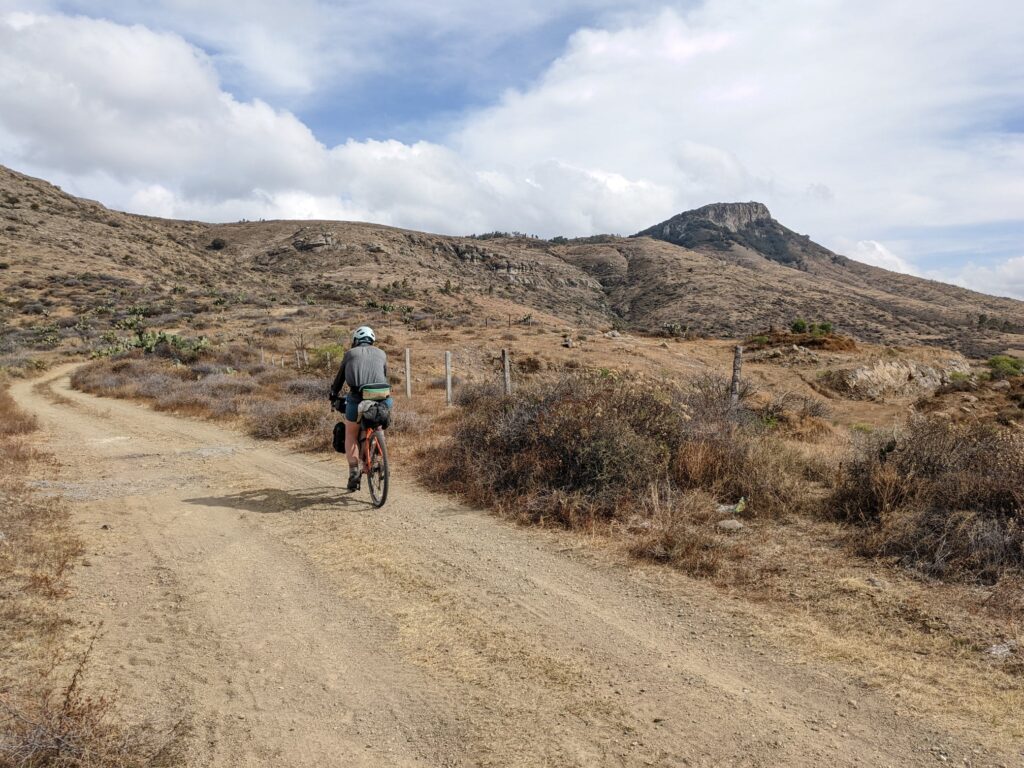
The route skirts the edge and tailing ponds of a large, active mining site, La Peregrina before trespassing through a pretty new bright red gate which asks people not to trespass and, at the least, to ask permission. Unfortunately it was very remote and neither of our phones had reception to text.
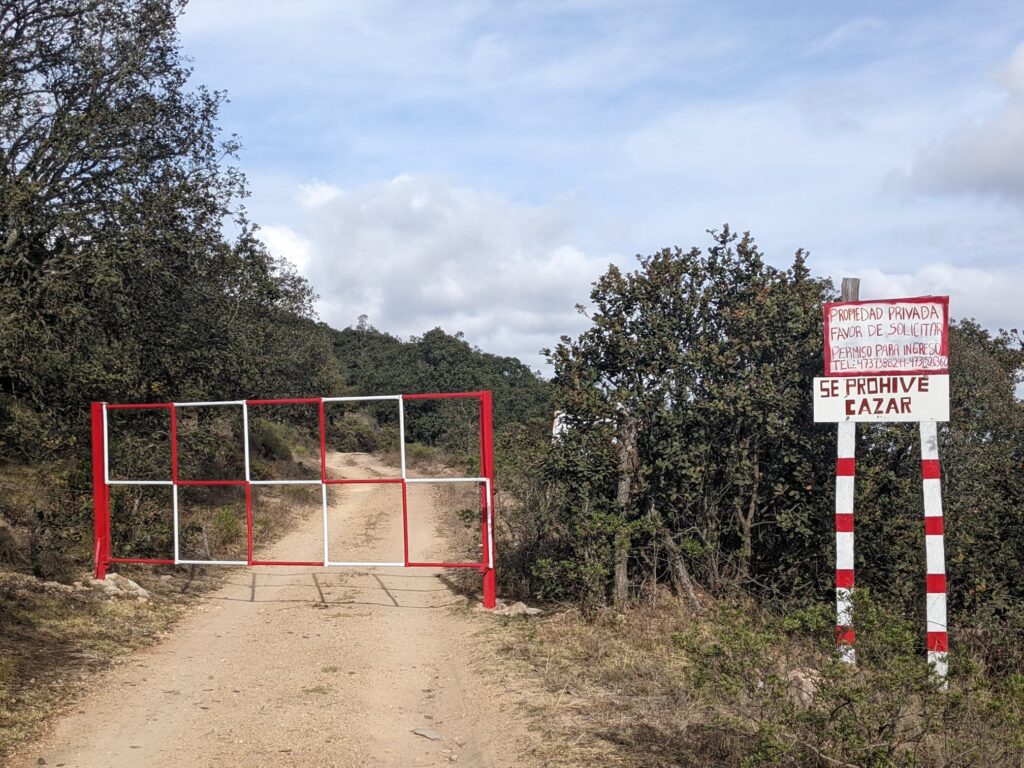
This has been one of my primary issues with digitally available adventure routes. While I am no stranger to trespassing, there is a code. Paramount is realizing you are outside of your right in doing so. I’ve been both generously welcomed and had guns drawn and leveled at me for doing so (mostly in my own home country), both actions are within the rights of the landowner and you have to know that every time you hop a fence.
The attitude with which you approach the situation determines not only your experience but of those who follow. While there has long been a “better to ask forgiveness than permission” attitude in the international bikepacking community, when the alluring little route lines appear in a Google Search, it invites folks to believe they ARE within their right to follow that line.
In walking and now pedaling across Latin America, I have learned simply to make it a habit to ask permission to cross land, especially where gates are involved, if someone is working nearby. Proprietorship of land in many of these areas is less to do with money and paper as it is with people who have staked their lives, sometimes for many generations, on relationship with the land. If permission is asked appropriately, it will be granted so generously that you will doubt that you needed to ask in the first place. This is Latin hospitality and the deference you accord the steward by asking, is basic manners.
If you intend to camp on the land and try to be sneaky about it, they will know and probably let you think you are getting away with it, because they are more polite and considerate than you are being in doing so. The appropriate thing is to ask and to have some small token gift and small bills to present or leave behind, as the situation stipulates.
If we roll through, taking advantage of the local guy and only regard the powers worthy of acknowledgment the ones strong enough to stop us from doing whatever we like, how are we any different than the first white explorers who went around the world doing and claiming as they pleased without regard for those who meld their lives with the land we merely traverse?
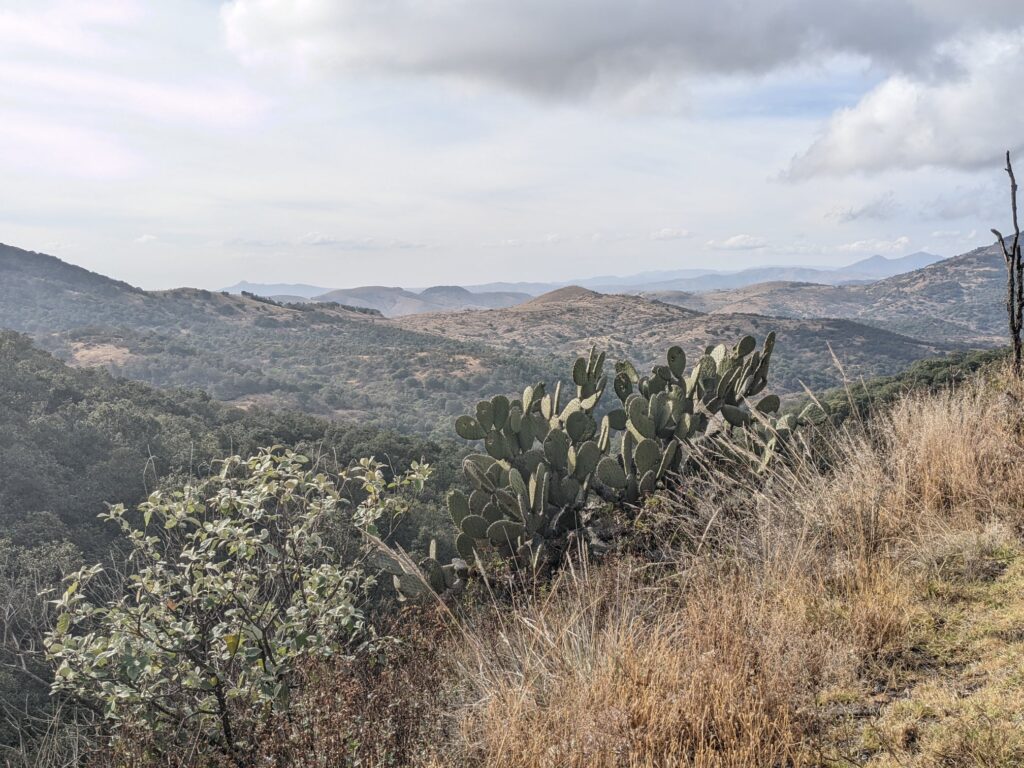
The next day was a long, pleasant descent, stopping to talk with people along the way to ask permiso and learn more about their lives and land. Here we also experienced another example of Mexican manners. On a narrow, one lane dirt road lined by fencing, an ancient truck groaning up, loaded with fruits and vegetables. While the truck made pretense to try to pull over to let us keep rolling, I quickly pulled us over, gesturing for them to continue.
While they absolutely would have stopped and let us keep going, the fact is, we would have the much easier time of getting going again. I don’t know if you’ve ever tried to get an ancient, loaded down, stick shift vehicle back into gear on an uphill but, it is a difficult lurching business. The 5 family members all in the bench seat waved and the driver did the little double toot greeting as the continued the crawl to supply their community.
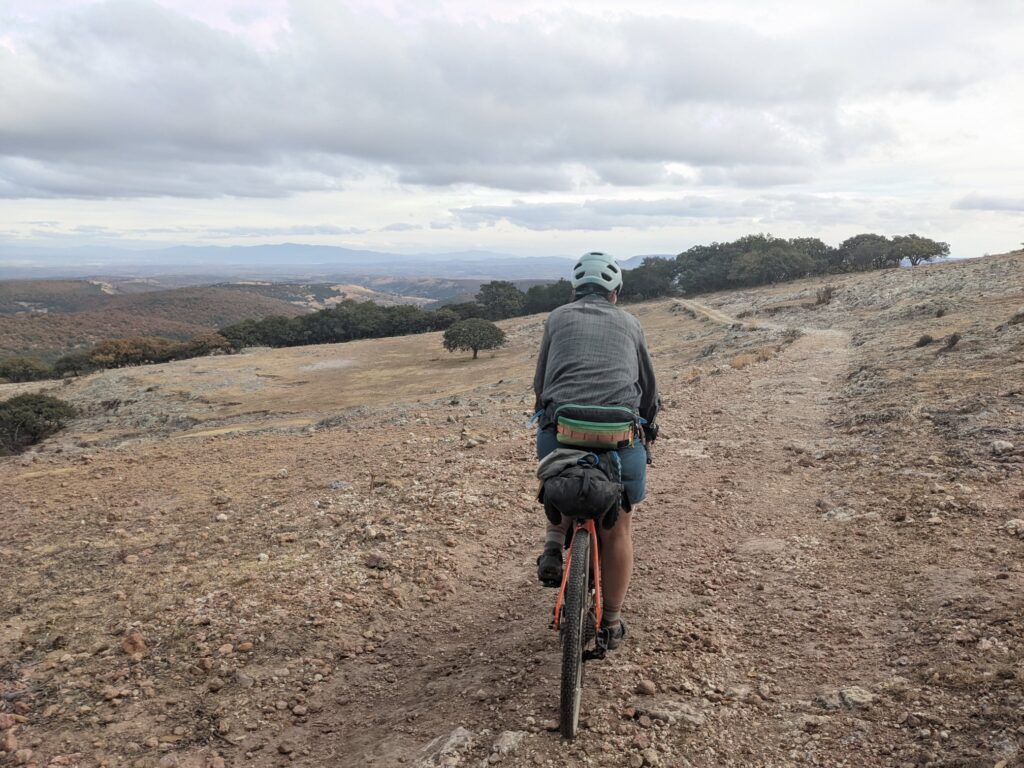
Before I start sounding preachy, let me balance the narrative with another story:
Rolling in to the cobble streets of Allende, I quickly got into what I like to call a “knice fight” with a cabbie. There is a Middle Eastern aspect to communication here that, whether a compliment or an insult, in each back and forth you one up each other in grandeur.
In this case, he did not like that we were on his roads and swerved at me unnecessarily. We had two open lanes on a one way and it was just he and I rolling. Despite the words you are going to read, know that this was all said in raised voices with no kindness in our eyes, theatrical sighs of longsuffering, and a lot of tongue clicking and tisking noises.
(translated into English), he leaned across to shout out his open passenger window:
“Miss, you must be careful and not ride on the roads they are very busy and dangerous.”
“My apologies sir! I simply have become so accustomed to the kindness of your countrymen that I did not expect it would be difficult for you to share!”
“My daughter (mija), it is simply for your well being that I am trying to warn you, you are riding very dangerously. You must slow down.”
“Oh ancient one, I can understand this would be true for one as old as you and who does not watch the road. God must be with you to keep you safe!”
“May God bless you!” he shouted in a way that assured me it was not a blessing he had in mind.
At this point there is a car executing a 40 point turn in the middle of the road ahead and we’ve been picking up speed and he can’t get around it while I can. I smugly pull us into our destination courtyard and pace a bit to release the ire. Neon amusedly pointed out that the many other gringos (in the downtown area I’d say at least 1/10 where white) peaceably walking the sidewalks were staring at the woman and cabbie flying down the middle of the road in a screaming match.
I just felt like a witch on her broom but don’t take kindly to being unnecessarily pushed around. A trait which has led us to trouble more than once in machista cultures.
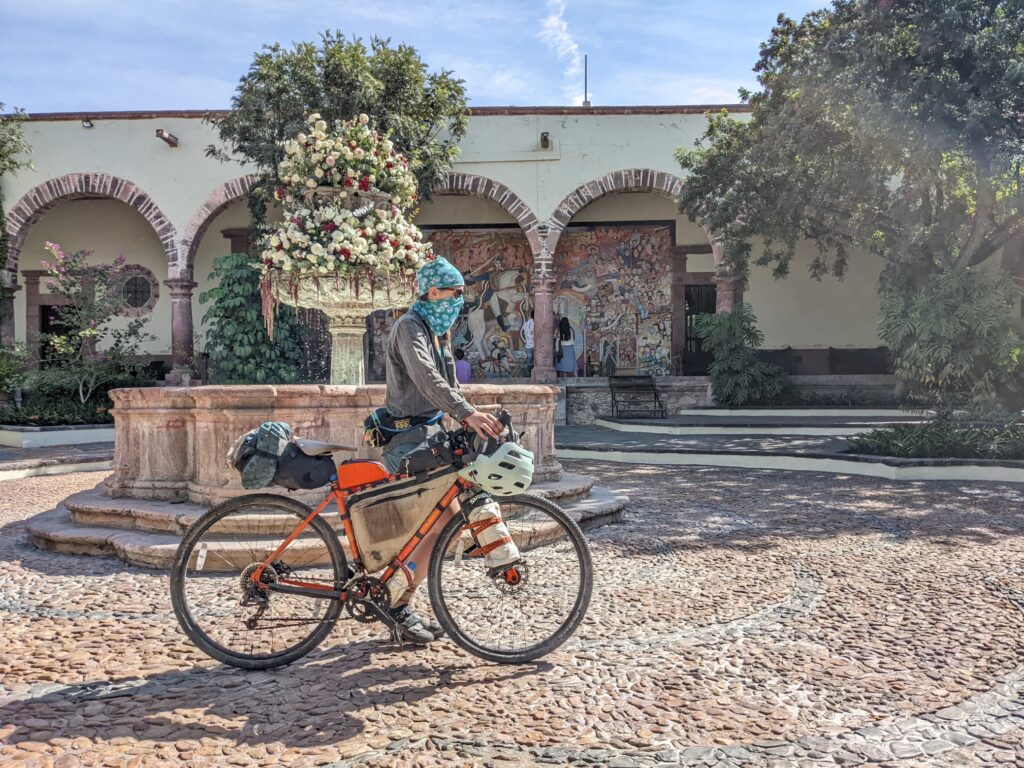
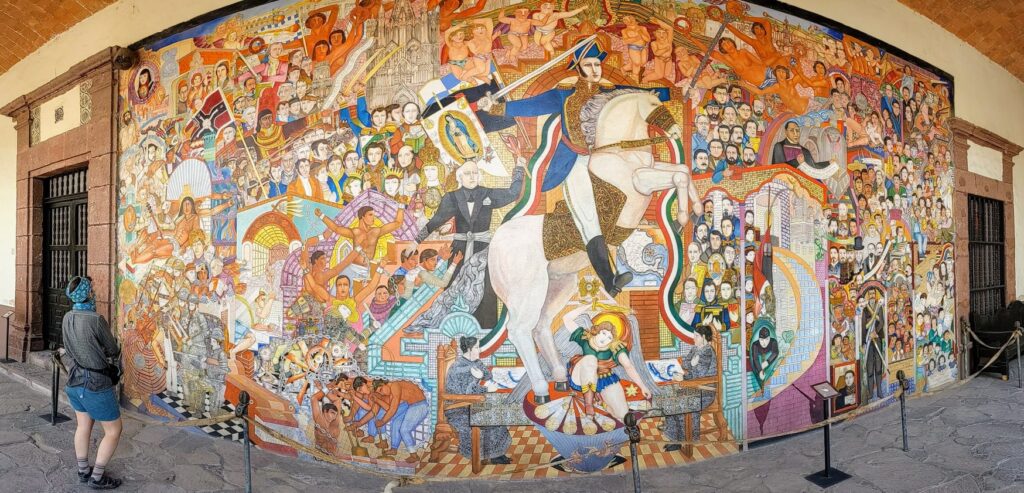
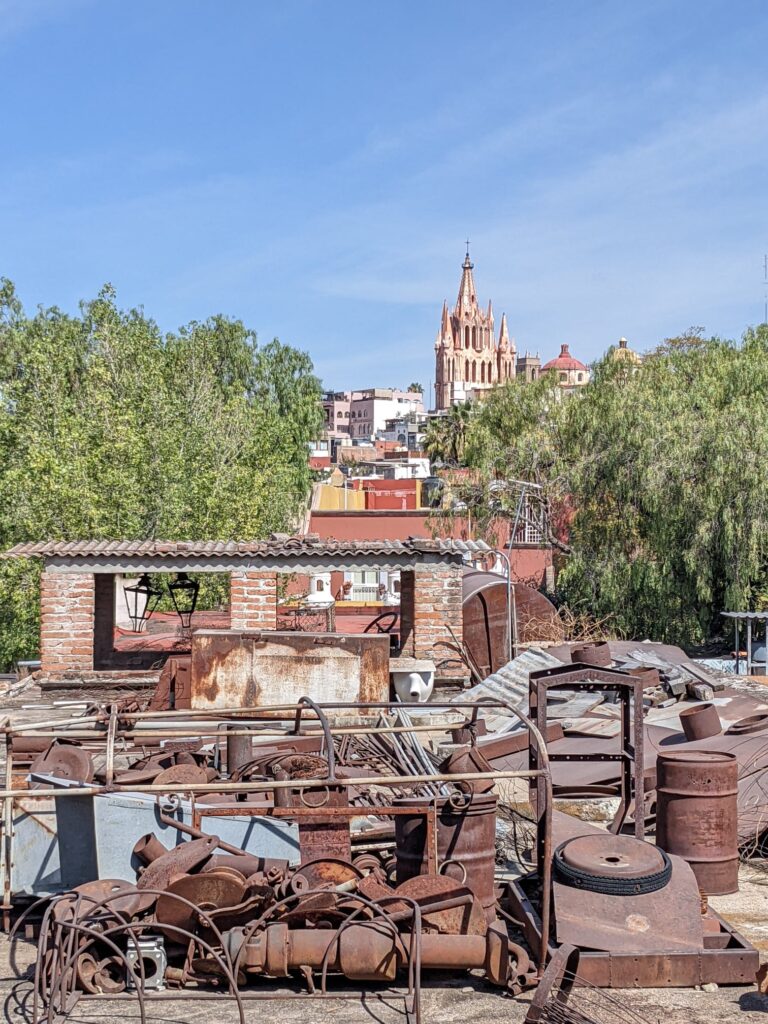
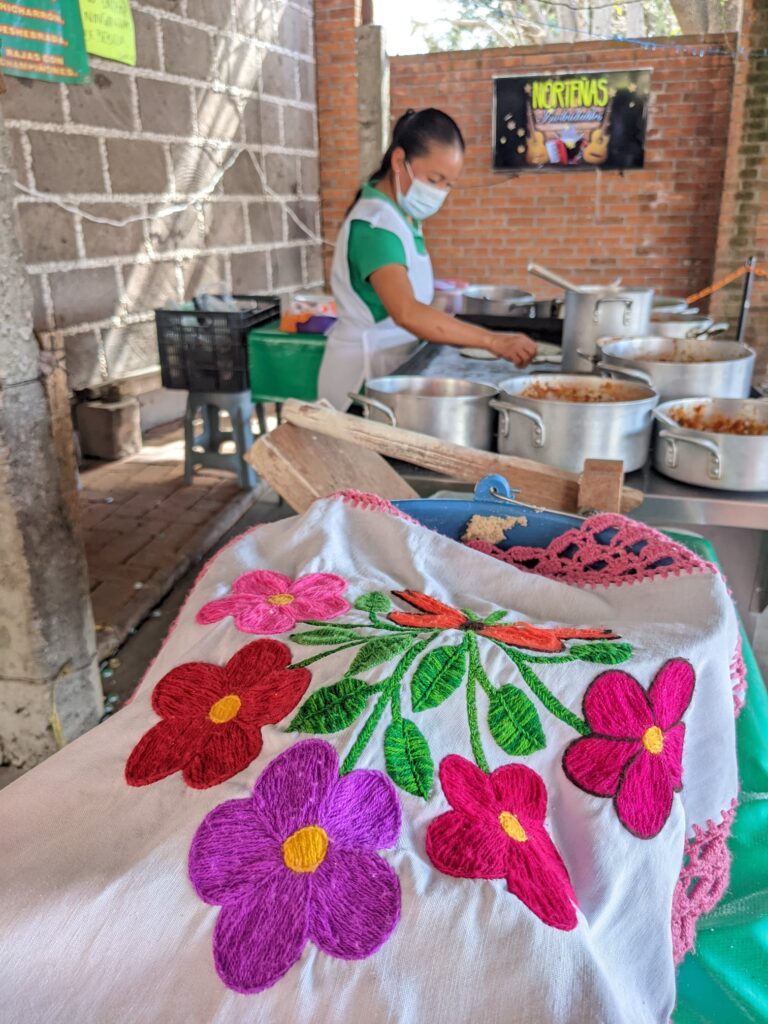
Also the invitation to admire textiles and eat as many gorditas as I possibly can.
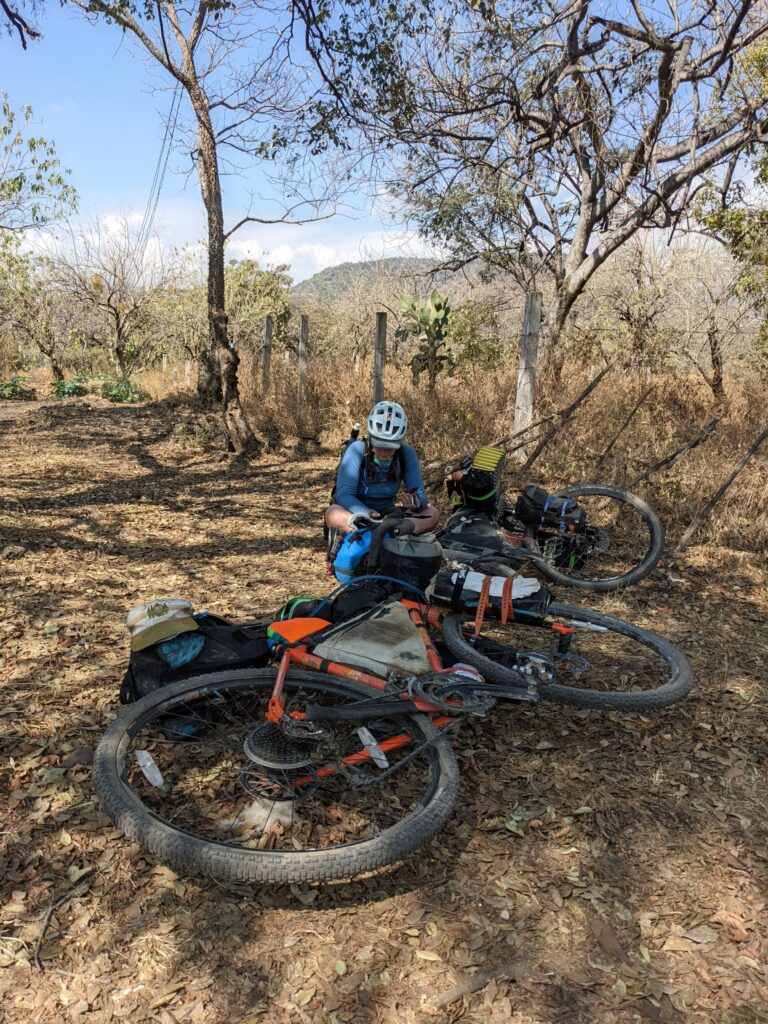
Town squares are the most advantageous places to stop, orient, and eat and they sometimes have public wifi (or at least claim to). However, as white women bikepackers in Latin countries we are considered to be traveling solas and are a matter of great curiosity. Thus, even in the best circumstances it is hard to get a moment to plan between the folks who want to chat, especially when they realize I speak Spanish. It is also hard to feel safe when so many people are staring, or to make yourself even more high profile than you already are.
Neon suggests we just ignore people but this is not comfortably within my ability. I can do it when we MUST but I don’t like being rude, or undermining people going out on a limb to try their English. So, we are grateful for our financial supporters so that we can afford cell phone data and are able to stop outside the edge of towns to meet our needs, figure out lodging, plan a couple route options through, etc.
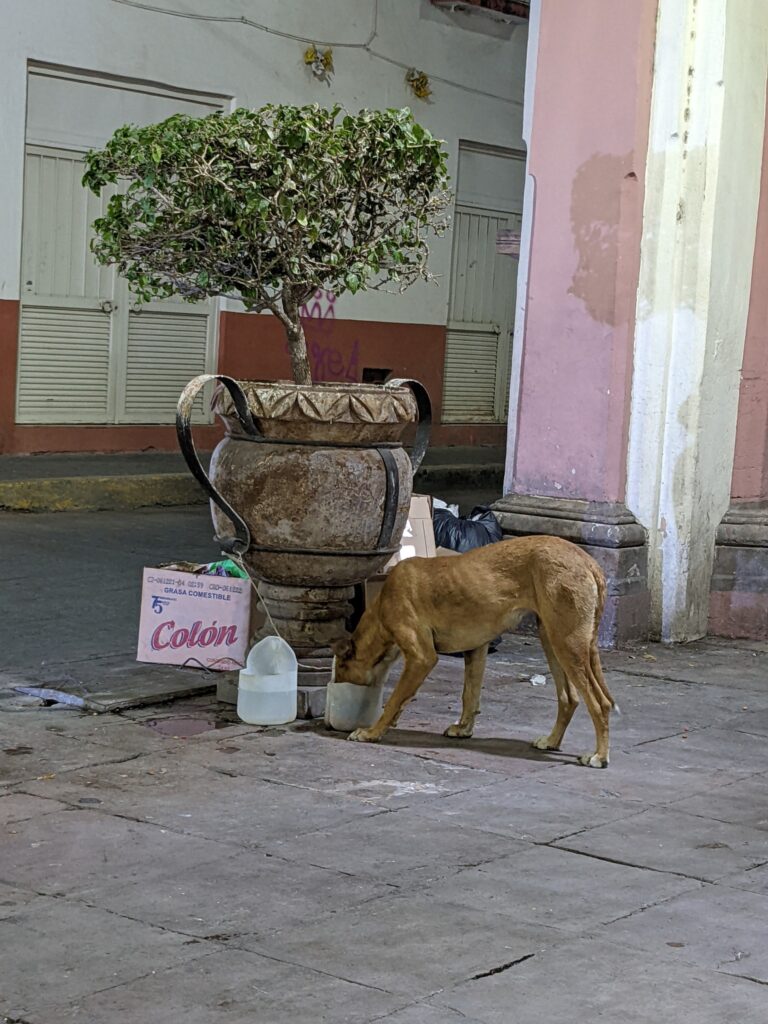
take a moment to stretch every time you stand up.
There are dozens of community run preserves in the mountains where the Monarch colonies come to winter. Even within these preserves there are various colony sites, as the Monarchs aren’t much worried about our fascination with locking them in to a static point on a map. There were two preserves above Angangueo and the day we pedaled through, the Monarchs themselves were fluttering high in the canopies after a heavy bout of hail. (video link)
I wondered if we would do the same with our own dying and dead? Then I remembered some of the pictures of deceased children I had been shown in the homes of ageing widows in the Southern Cone. Or the preserved remains of an infant on display in a glass hutch on the street while its aunt sat near at hand collecting money on the basis that it was ‘blessed’ because the remains had naturally mummified. Or the Mummy Museum only weeks before in Guanajuato. I realized: yes, we absolutely do.
I marvel at this visceral desire to affirm and preserve ourselves in relationship and time. Whether it is myself comparing recent pictures of friends at Perito Moreno Glacier to ours, to see how the ice shelf has changed, or the pictures my mother sent as grandpa descended toward death in a recliner in the living room. We want to know, we were here, we existed in time. I softened further when I realized, the final flutters of those wings against that baby’s cheek may be the only time they meet. That child’s child may never see a Monarch, except in the 35 pictures grandma took of dad as a baby.
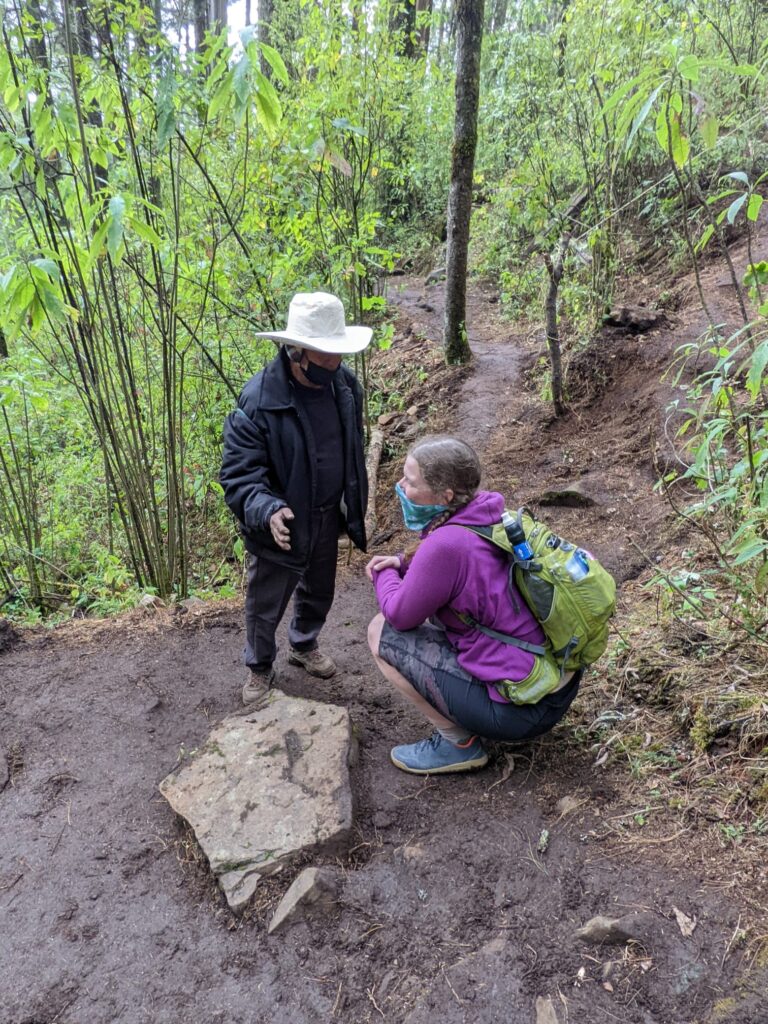
I listened for a bit as Francisco Ambrosio Martinez, a machete wielding 73 years old who walked the 6 km round trip out here every day along with 34 of his fellows from Municipio de Aucampo. We discussed the interplay of how protecting the butterflies meant protecting the trees and the flowers and he explained even that a ravoncito (I believe some sort of wild cat) lived in these protected hectares.
“But, he doesn’t like people much,” Francisco explained, “he comes out to eat around 3 am and then goes back to hide in his cave before the people come.”
I told him my friend who sent me here was like that.
I asked him how long he had known the butterflies, “del edad que abri los ojos,” he replied.
From there he leaned the conversation heavily toward the financial injustices and how the money which flowed in rarely made it to those who do the work. I took the hint and thanked him with a 20 peso note and shuffled on in my place in line with my fellow spectators.
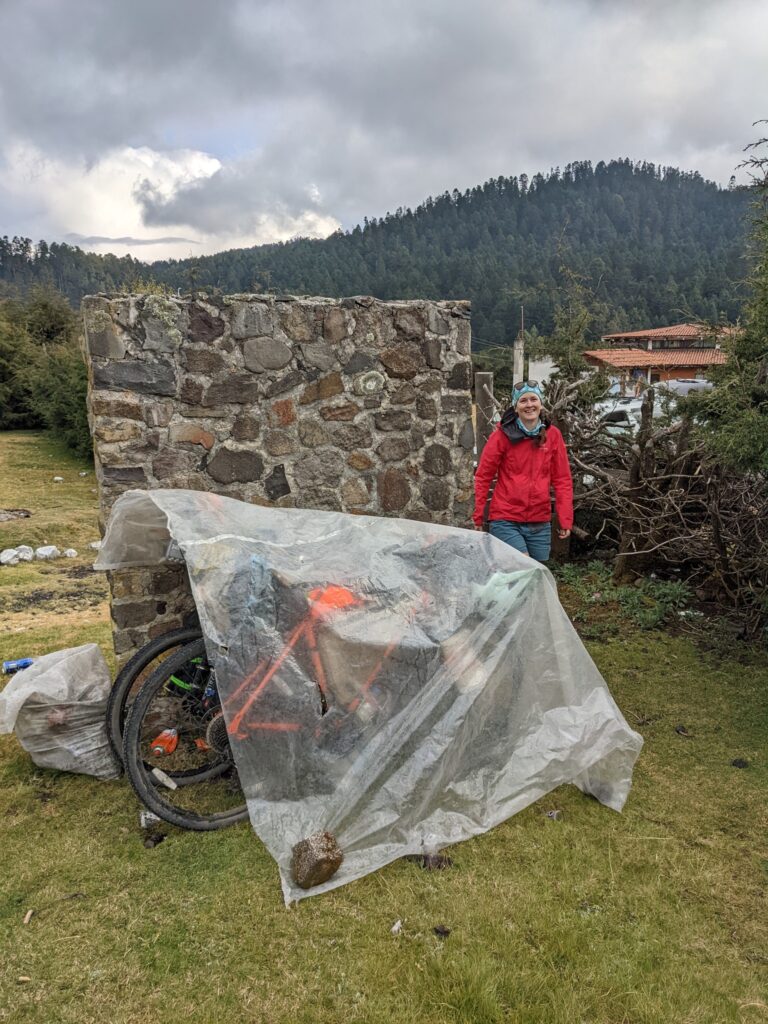
We’d been nervous to leave our bikes unattended while we went up to the preserve. We had talked with the two men taking cash at the gate and they helped us stash our bikes behind this sign, behind a hedge and a fence and had left some cash with them for “parking.” We at first felt silly about doubting their safety when we returned several hours later to find someone had put a plastic tarp over our bikes when it had begun to rain. A couple moments later Neon realize her biking gloves had gone missing. Seems bit of an extra tax had been levied. So, you know, it’s a mixed bag, really.
This is one of the differences between travel and vacation.
On vacation, you are seeking rest and respite from daily life, to cast off obligations and want see a new corner of the world in a reaffirming light. You want things to be beautiful and comfortable and to romantically think, “I wish I could live here.”
Travel means that doing so becomes your daily life. It leaves you a bit more open to the elements and eventually, you see through the tourist veneer. You see how hard it is to survive there. Whether you are a butterfly, street dog, glacier, or human.
Along with the prolonged exposure, those same impetus, to process and work, join me out in the wider world as much as they do for you in the home or office. In being open to seeing things from different perspectives and sharing those with you, this has become my job. It is a mantle I choose every day that I can, a job I take seriously and delight in doing.
I am grateful to be traveling. I get to make the conscious choice to show up for this kind of work. It takes time and sweat to ingest and process. It has been a learning process to let go of expectations and observe as the experiences rise and fall as they will. Then tell it as honestly as I can.
For this opportunity to work as a traveler, I am immeasurably grateful. To joust with crabby cabbies, for long climbs, the rustle of butterflies in the tree tops, guidance of street dogs, and the creaking of my chain and knees as lessons turn along with my wheels.
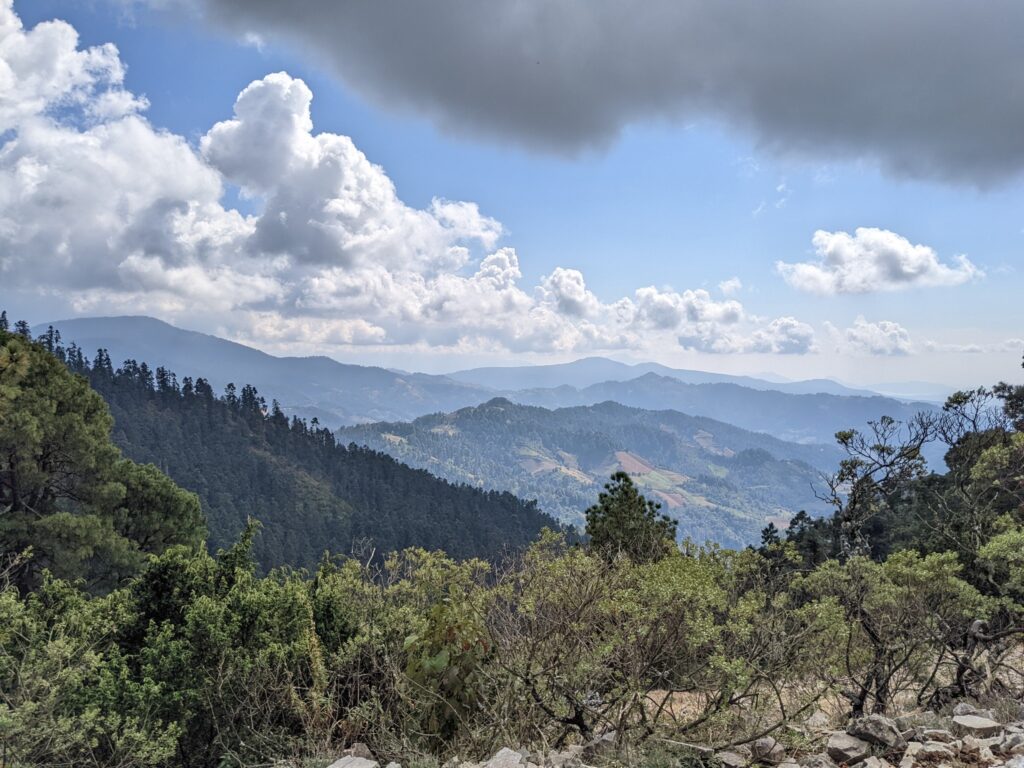
If you appreciate this content, consider supporting our work (each blog post takes 8-12 hours of work):
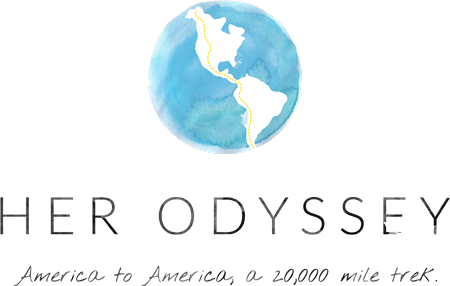

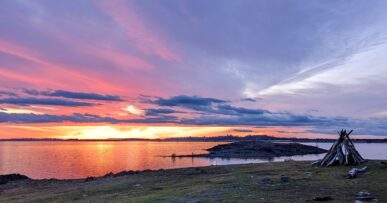
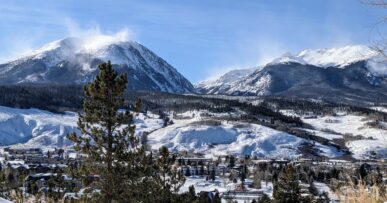
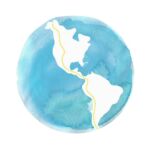

Comments (5)
Fidgit. You are inspiring. I would love to see you soon in Salida, Colorado
Thank you so much. Both for your words and actions.
How about, see ya in April?
That will be super wonderful! Hopefully Neon and POD can join us! I will be here in Salida!
Vacation vs. travel—you make me wonder if maybe I’ve been doing ‘vacations’ wrong my whole life: always a list of things to see/do in a limited amount of time, and some kind agenda/objective (sometimes just see/do x at the least possible cost). Hmm; maybe I need to learn how to relax.
Hahaha, even from what little I know of you, I can absolutely see this of you! I think there are a subset of folks who fall into this realm, curious and hungry minds for whom ingesting information is a comfort zone, life pattern, and a passion. And, like all things, I think it’s about balance and as to the “doing it wrong” thought, I would rather consider it as an opportunity to teach yourself how to intentionally frame your time to pursue what you want out of it. If having an agenda/objective and keeping moving to fill that brings you fulfillment, then, that’s how you should spend your time when vacationing! Teaching yourself to be still and truly relax, also has long term benefits. And putting yourself outside of your comfort zone, opens up capacity for growth.
But when you talk about the list of things to see and do in a limited amount of time…I really felt that way in the states I’m about to write about (Oaxaca and Chiapas) I could have spent months or years in each and not seen them all but something about the quality of selecting my focus made what I learned even more of a treasure! Still want to go back though. =)